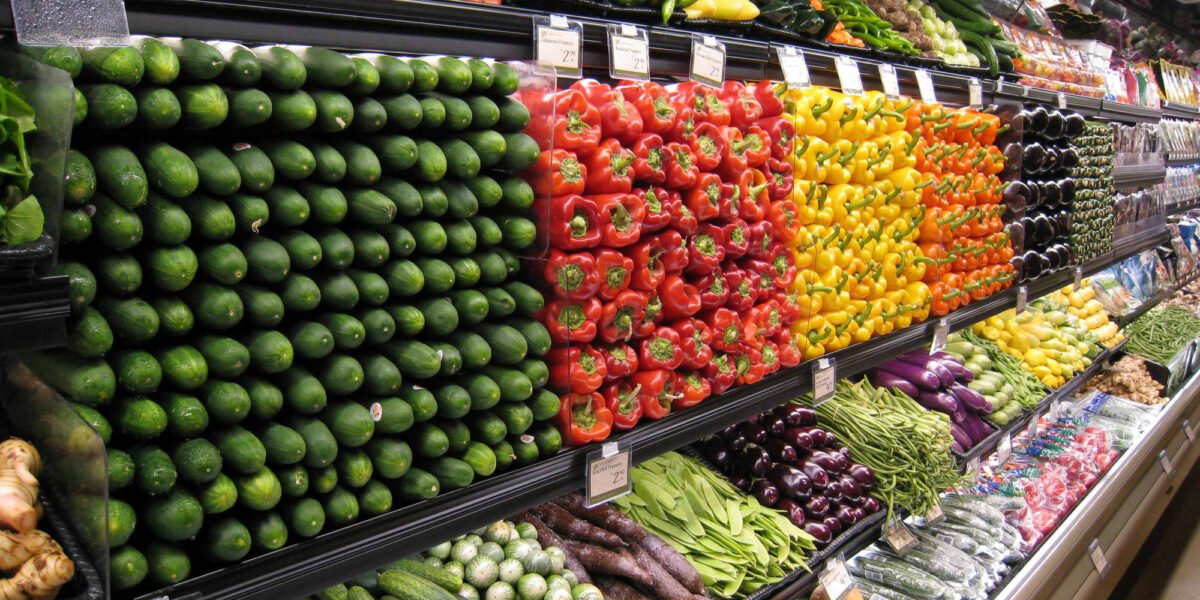We don’t know about you, but we seem to be noticing loads of people going vegetarian recently. The word on the fitness circuit is it’s healthier than eating meat and helps you lose weight.
But just how warranted are these rumours? Where are they coming from? and are there any benefits to going veggie? Hang fire whilst we dive into the green world of the vegetarian, and try to understand if there really are benefits to be had.
First up, when we talk about vegetarians, we’re talking about those that don’t eat meat, but they do still eat animal by-products such as cheese, yoghurt, and will still also eat fish.
We’ve decided to pull out some of the more common pros and cons of going vegetarian for you to have a nosey, and then go carry out your own research.

Vegetarian Pros
Keeping weight down
It’s actually been proven through various studies that those who follow the veggie lifestyle are actually more unlikely to be obese than those who don’t.
Now this could be down to the naturally lowered intake of calories with food that still fills you up, or it could be down to the fact vegetarians are more likely to plan their meals and not eat on a whim.
Whatever the cause, it’s worth bearing in mind that being a vegetarian could actually be great for reaching your fitness goals, but that doesn’t mean it’s the only answer.
Health benefits
We could reel off countless benefits that have been attributed to becoming veggie, but the evidence backing up each claim varies and if you’re considering it you should investigate a little further.
Potential benefits include;
– Improved colon health through increased fiber intake alongside less meat and poultry that takes longer to digest,
– Improved heart rate, due to the increased intake of foods that help lower cholesterol and blood pressure,
– Reduced risk of diabetes, due to improved intake of fruits, whole grains, nuts, etc, that all improve blood sugar control and help improve insulin response.
Ethics and sustainability
Due to the nature of consuming animals, there are a few sustainability issues for meat eaters to consider.
Firstly, the fact that raising livestock is a huge consumption of lots of plant food and grains, food that could otherwise be used to feed humans.
Secondly, the way in which meat is reared and kept also raises concerns about the well-being of animals and the ethics behind keeping them in confined spaces and raising them just to be killed and eaten.
Lastly, you should also consider the amount of greenhouse gas and the environmental impacts of raising livestock.
Becoming vegetarian is solely the decision of the person who is making the change. But if you are considering it as a choice you should have a read up on each of these area to understand the benefits and how your choices impact the world you live in.
Vegetarian Cons
Missing out on nutrients
The one area veggies tend to struggle is getting their protein needs up to scratch when they dump the meat. Iron is another nutrient that becomes harder to consume and it’s completely dependent on the availability of substitutes.
Another vitamin that goes missed is the vitamin B-12 that is naturally found in animal meats, the nutrient that helps keep the bodies nerve and blood cells healthy.
You’ll need to make sure meals are well planned and that you understand what you may miss out on to ensure you incorporate those nutrients into your diet.
Not automatically a healthy choice
One of the most common myths is that becoming vegetarian means you’ll automatically become healthier.
Bear in mind that sugar-filled and highly processed foods can still be vegetarian, but they don’t necessarily mean they are good for you.
Vegetarians can be at risk of reaching for the cookies and chocolate if meals aren’t planned and the foods haven’t been bought. Think about it, chips, doughnuts, Oreos, cakes, are all vegetarian!
Increased intake of pesticides
Pesticides are used to grow crops and maintain the quality of them on the farms. These pesticides can find their way into our bodies through consumption.
There are numerous health impacts associated with ingesting pesticides, and it might be worth you doing your research on what you’re eating, before you eat it.
There is also the argument that the increased use of fertilisers and pesticides to produce more vegetable and fruit, could cause more environmental problems, alongside harming animals.
We’re not here to tell you what we think is right or wrong, we just wanted to pull out some of the most common arguments for and against, for you to then go ahead and carry out your own research.
At the end of the day, the decision is yours! If you want us to have a chat with you in your personal training sessions or at boot camps, we’d be happy to impart our thoughts onto you, but like we said before, the decision is yours

